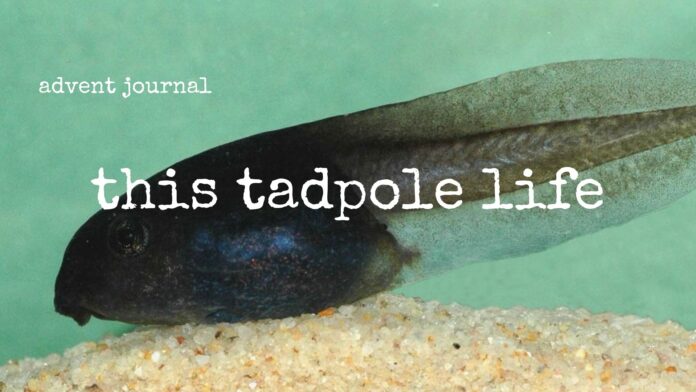A quick note: I am playing a bit of catch up with my Advent Journal because I picked up some malware that was sending people spam messages when they tried to get to the site. That is all corrected now, thanks to the good folks at Dreamhost, but it has kept my quiet for a few days.
_____________________________
This is my second Advent season since I left my job as an editor.
It was not a pleasant parting. Thanks to my having turned sixty-five, I could retire instead of just quit to get out from under the misery of the situation aimed at pushing me out. In my exit interview I said, “One of the things I have learned is that our Human Resources department is called that because the company sees human as resources, not that you are offering resources to humans.
I left the job feeling like I had failed.
I loved editing manuscripts and working with authors. I loved my colleagues (most of whom were also pushed out by the new administration). I felt good about the work I did and the relationships I built. I thought I would work there for another ten years. And then I wasn’t able to do that anymore; I felt like I had failed. (I realize I’ve already said that once; it was a strong feeling.)
Part of the reason I felt that way is almost every morning after I announced my retirement I got an email from my new boss telling me I was a failure in so many words. Those missives took their toll. Those feelings surfaced again this week as I read Joe Moran’s words in If You Should Fail:
This is meritocracy’s fatal flaw: not that it sets up people to fail but that it defines so meanly what success is.
Later in the same chapter, he went on to talk about “the tadpole philosophy,” a phrase coined by the writer R. H. Tawney. He said it was how unequal societies (and companies?) justified their inequity–by convincing the tadpoles they would be successful only if they became frogs. Only a few actually make the transition and then “croak addresses to their former friends on the virtues by means of which tadpoles of character and capacity can rise to be frogs.”
But whether or not a tadpole becomes a frog has very little to do with how smart they are, what choices they make, or how hard they try. Moran says,
A tadpole has a right to its blameless, vegetarian, tadpole’s life, the same right to be on the earth as any other living thing. That life may be brief and cosmically insignificant, but so, in the deep time of the universe, is the life of a frog, or a human.
No matter our age, we spend a lot of time and energy in this country trying to prove that we are successes, that we are ready to move to the next stage, while living with the impending sense that we are not going to measure up. The anxiety that inflicts so many of our young people lets us know we have passed that value on to them as well.
Our church sponsors a community-wide youth group that takes an annual service trip to Appalachia or the like. The week is rich and meaningful for the high schoolers who go each year. I heard one of the adults recount talking to a parent of a kid who had not gone and saying, “I told them she should go on the trip because it is a great way to boost their resumé for college.”
I knew the adult didn’t hear the implications of what they were saying, and I prayed that no one had repeated that logic to the high schooler. I didn’t want them to pick up the message, intended or not.
Life is a competition only if we make it so, and too much of the time we do, setting up an seemingly endless string of necessary achievements for a person to feel successful and none of them is ever enough–at least, not for long.
What a tadpole needs to become a frog is in its DNA. At some point, and for a variety of reasons that the tadpole doesn’t control, those cells start to grow, much like a child goes through puberty, I suppose. (Remember, I am not a biologist; I’m talking metaphor here.) The best thing a tadpole can be is a tadpole, rather than a frog-in-waiting. They, like us, are wonderfully and uniquely created in the image of God and worthy to be loved.
My boss was right about one thing: I couldn’t do the job they way wanted me to–in large part because the job was set up so I couldn’t do the job they way they wanted me to. It was, to use Moran’s words, a mean definition of success. Where they were wrong about me and my colleagues is we are more than resources to be used up. We, like the tadpoles, are good just like we are.
That goes for you, too. And for my old boss, if they were willing to see it.
Peace,
Milton

I knew your parting was painful and now understand why. I cant think of anyone who is more of a human resource than you! So many ways you have grown and shared your wisdom about everything from tadpoles to cookies and so much more. Thank you for sharing your light and truth through these posts. May advent be a time of joy and hope for good news to come. Thank you.
Thank you, Milton!